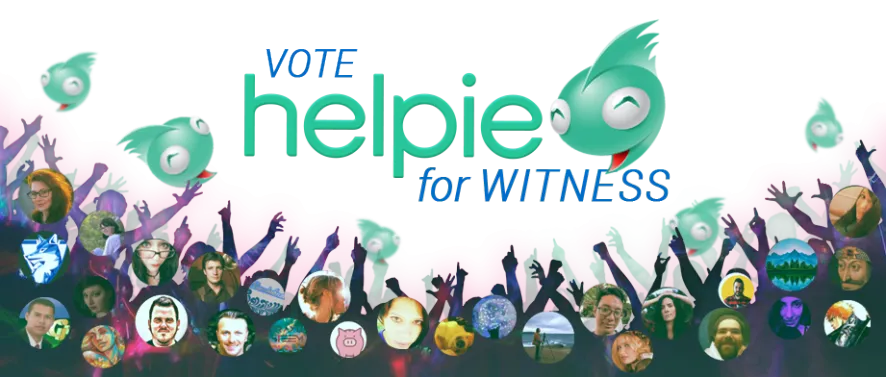Let's talk about sound first; we all know that images can't echo for the simple fact that "echo" is produced by the reflection of sound, not light. The world model that's constructed in our minds is based upon sensory inputs, mainly from the eyes and ears, to create the conscious experience of the self in the universe.

source: PxHere
The conscious mind is a wonder to behold, but it's audience is eternally limited to just one person, and that's you, dear reader. You are the only person in the entire universe who knows what it's like to be you. I can try to explain what it was like for me to go on a roller-coaster for the first time, and due to the similarities between roller-coasters and the ironclad nature of the laws of physics and the probability that you also have been on a roller-coaster sometime in the past, I will be successful in doing that to a degree, but my experience is unique to me, as is yours to you. We can imagine what it's like to be a soldier in the Great War, but we'll never know what it's like to be one or to have been one. It's this strictly subjective nature of consciousness that makes it such a difficult phenomenon for science to handle.
There is no doubt that there's a strong correlation between the physical body and brain and our subjective experience and objective behavior; the basic fact that damage to certain parts of the brain results in predictable changes in it's functioning is strong evidence for that. We can now literally see the changes in our brain's connectome when it's subjected to immersive experiences or training; we can see the neuroplasticity in action, which underlines the strong correlation between the physical and the mental. But correlation is not causation, not necessarily. As said previously, it's not clear at all if our subjective conscious experiences are caused solely by our physical brains, or, put more generally, what precisely is the nature of the interaction between the physical brain and the non-physical conscious experience.
The world model that's constructed by our minds is strictly personal and mostly fake; we don't experience reality as it is, but how our minds present it to us. As science progresses and dives deeper and deeper into the basic building blocks of our physical universe, and zooms out further to understand the scope and history of it, it becomes clear that reality would overwhelm us if we were to perceive it as it actually is. Our mental model of the world we inhabit is shaped such that we're best able to survive in that world; each creature develops a world model that's conducive to that creature's survival, that attracts it to stuff that's good and makes it fear and flee from stuff that's bad, like food and predators respectively. The model allows us to avoid obstacles and to not fall from a cliff, to hunt for and target prey... The best description of our mental model I've heard is to compare it to the desktop-icons on your PC screen; these icons are not the programs, the bits and bytes that are flipped on a machine-level that cause certain actions to be performed by the hardware. The icons hide all that complexity and present us with an easy clickable image that outputs the result we desire. We see the icons, not the programs.
Sound in the physical reality is nothing more than waves of compressed air, vibrations in some physical medium. It's only when these vibrations hit our cochlea in the inner-ear, that electrical signals are generated in response to that and transported to the brain where it interprets these signals into something we perceive as sound. Anywhere from 17,500 - 23,500 hair cells can be found in the human ear, enabling is to distinguish a fairly large spectrum of wavelengths, tones and timbres. But the most difficult thing this enables us to do is to interpret speech; this is why sound is essential in the construction of our mental world model, as we build each other's models through the power of communication and storytelling, the invocation of imagined mental images.
What Is It Like to Be a Bat?
But as we're slowly beginning to understand, all mental images are in a way imagined. Our minds greatest trick is to predict the model; the mind is a literal prediction-machine as it constantly compares sensory input with previous experiences, and fills in any blanks with what's most similar to those past experiences; this is why we all have cognitive biases as the brain automatically discards new information that contradicts past experiences, and this is also why it takes conscious effort to keep an open mind for ideas and opinions that go against your established world-view. We all have two blind spots, one in each of our eyes, yet our field of view is always uninterrupted; this is because our brain fills in the blind spots caused by the limitations of the physical "hardware." We're partially blind in time too. Try this: look in a mirror at your eyes, then move only your eyes to look slightly to one side. You'll see that you're unable to see your own eyes move in the mirror while they move. Only when when they stand still again and renew their focus, you can now see your eyes in their new position.
The conscious experience of existing in the universe is a miracle that's yet to be understood by us mere mortals. One of the best thought experiments on this subject that I know of is Nagel's paper What Is it Like to Be a Bat?:
Nagel uses the metaphor of bats to clarify the distinction between subjective and objective concepts. Bats are mammals, so they are assumed to have conscious experience. Nagel used bats for his argument because of their highly evolved and active use of a biological sensory apparatus that is significantly different from that of many other organisms. Bats use echolocation to navigate and perceive objects. This method of perception is similar to the human sense of vision. Both sonar and vision are regarded as perceptional experiences. While it is possible to imagine what it would be like to fly, navigate by sonar, hang upside down and eat insects like a bat, that is not the same as a bat's perspective.
source: Wikipedia
Our brain interprets vibrations through air as sound, or as music when said vibrations are produced with a rhythm and a melody. We usually don't "see" sound (I say "usually" because there are cases of synesthesia, the involuntary "melding" of sensory inputs). Since a bat uses auditory output and input to navigate it's physical surroundings, it's reasonable to assume that bats see with their mouths and ears. How good of a "picture" can a bat's mind produce in the bat's own experience? It's reasonable to assume it can distinguish hard surfaces from soft surfaces, liquids from solids, moving from stationary, but is it unreasonable to assume that this ability has evolved to such a degree that the bat is able to distinguish between colors? No matter how much or how little we assume about the bat's abilities to construct a model of it's surroundings, we'll never know what it's like to be a bat, unless it's in a previous or next life...
If you have the time, here's the conversation that inspired me to write today's post, "Indre Viskontas on Music and the Brain", which I highly recommend:
Indre Viskontas on Music and the Brain
Thanks so much for visiting my blog and reading my posts dear reader, I appreciate that a lot :-) If you like my content, please consider leaving a comment, upvote or resteem. I'll be back here tomorrow and sincerely hope you'll join me. Until then, keep steeming!

Recent articles you might be interested in:
| Latest article >>>>>>>>>>> | Why 70 Is So Important |
|---|---|
| The Price Of Liberty | Ariel Got A Tan |
| Democracy For Sale | Desirable Incarceration |
| Would You Like To Know More? | Kildall & Kramer |

Thanks for stopping by and reading. If you really liked this content, if you disagree (or if you do agree), please leave a comment. Of course, upvotes, follows, resteems are all greatly appreciated, but nothing brings me and you more growth than sharing our ideas. It's what Steemit is made for!


Just for Full Disclosure, I'm invested in these crypto-currencies:
Bitcoin | Litecoin | EOS | OmiseGo | FunFair | KIN | Pillar | DENT | Polymath | XDCE | 0x | Decred | Ethereum | Carmel | XYO

@helpie is a WITNESS now! So please help @helpie help you by voting for us here!
